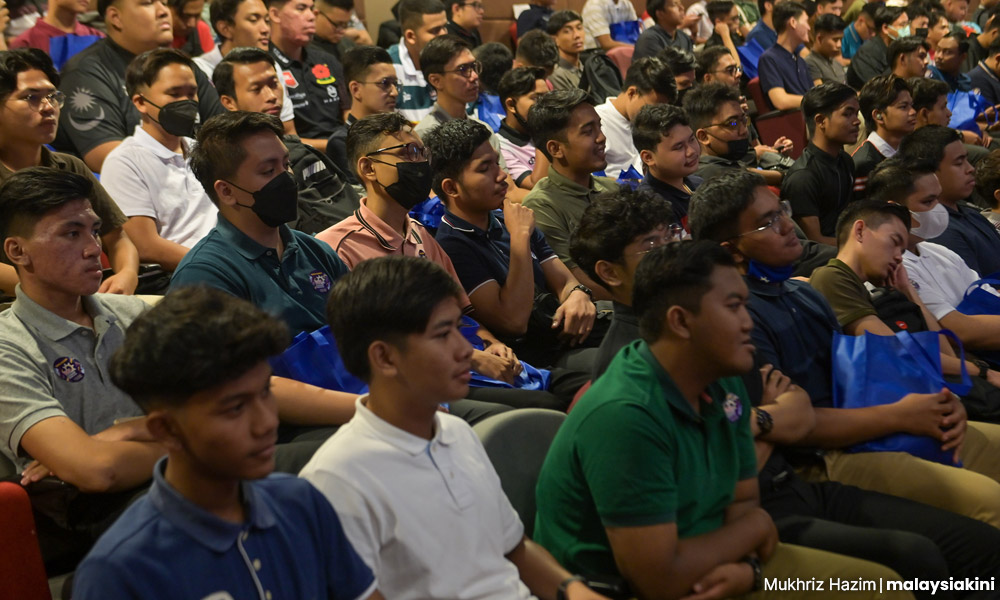Voters generally don’t trust politicians to keep their promises. Why? Politicians tend to over-promise and voters react more strongly to promises that were not kept than those that were.
Studies attribute such voter behaviour to “negativity bias”. Sort of damned if the party does, and damned if it doesn’t. A report published by Pusat Komas in 2020 shows this paradox.
Pakatan Harapan, for example, did deliver on some of its reformasi pledges outlined in its Buku Harapan, which raises a moot point – could Harapan have done more if it had served a full five-year term?
I have read the pledges by Barisan Nasional, Perikatan Nasional and Harapan. Generally, same old promises were re-worded to read like new intentions.
Are we condemned to see more of the same ineffective leadership in a minority government? Depressingly so when the field is littered with party candidates whose policy position is as unclear as their public service is unproven.
Here, for its practical relevance to our voting for a new generation of progressive leaders, I quote at length from a book titled “Lee Kuan Yew – The Grand Masters’ Insights on China, the United States and the World (2013)”, published two years before Lee’s death at age 91.
Four years before Singapore separated from Malaysia, Lee said at the second meeting of the Malaysia Solidarity Consultative Committee meeting in 1961, “The test of leadership lies not merely in echoing fears and doubts, especially when these fears and doubts, however real, are capable of solution...
“As leaders of our various communities, we recognise the existence of these anxieties, but we have to take the lead in exorcising them … (and) lead in public thinking.
“After having drawn attention to the interests of our communities that require special protection, we must formulate solutions which will safeguard these interests and advance the common good.”
In 1964, the then-Singaporean prime minister said, “No society has existed in history where all people were equal and obtained equal rewards … (but) it is possible to create a society in which everybody is given not equal rewards, but equal opportunities ... society should make it worth people’s while to give their best to the country. This is the way to progress.”
Widely portrayed as a sharp and articulate autocrat by the West, Lee alluded to Singapore’s language policy in an interview with Foreign Affairs in 1994, “Nobody likes to lose his ethnic, cultural, religious, even linguistic identity.
“To exist as one state, you need to share certain attributes and have things in common. If you pressure-cook, you are in for problems. If you go gently, but steadily, the logic of events will bring about not assimilation, but integration.
“If I had tried to foist the English language on the people of Singapore, I would have faced rebellion all around. If I had tried to foist the Chinese language, I would have had immediate revolt and disaster.
“But I offered every parent a choice of English and their mother tongue, in whatever order they chose. By their free choice, plus the rewards of the marketplace over a period of 30 years, we have ended up with English first and the mother tongue second.
“We have switched one university already established in the Chinese language from Chinese to English. Had this change been forced in five or ten years instead of being done over 30 years – and by free choice – it would have been a disaster.”

Today, with a population of about 5.5 million, Singapore ranks among the world’s top 20 in its economic performance, public service, rule of law, competitiveness and university education.
And Malaysia is far behind Singapore across many indicators as shown in a country comparison from WorldData.info.
Why we fell behind lies in this quote, “It is the creativity of the leadership, its willingness to learn from experience elsewhere, to implement good ideas quickly and decisively through an efficient public service, and to convince the majority of people that tough reforms are worth taking, that decide a country’s development and progress.”
On Feb 10, 2006, as senior minister, Lee reminded Singaporeans that “to optimise our opportunities, we must retain the vigour of our multi-racial-lingual-cultural-religious society.
“We have the advantage of all being educated in English in an age when English is the common language of the world and the Internet. However, we must not lose our basic strengths, the vitality of our original cultures and languages…
“Realism and pragmatism are necessary to overcome new problems. Only those basics that have proved sound in the past should not be changed unless necessary.
“Amongst them are honesty and integrity, multi-racialism, equality of opportunities, meritocracy, fairness in rewards in accordance with one’s contribution to society, avoidance of the buffet syndrome where, for a fixed price, you can take or eat as much as you want. That is why welfare and subsidies destroy the motivation to perform and succeed.”
These attributes underscore Lee’s thinking - determined leadership, efficient and clean administration, fair and equal opportunities and social discipline, which saw Singapore transformed from a third-world island state in 1965 to a first-world nation in 1990.
Lee had his “Singapore Story”. We have our Malay Dilemma. Racial politics and systemic corruption have consistently blocked our path to progress.
Who, then, among the 15th general election candidates will qualify as leaders of calibre who can inspire our trust and confidence in a clean government that, one day, we too can boast of our successful Malaysia Story? - Mkini
ERIC LOO is a former journalist and educator in Australia, and a journalism trainer in parts of Asia.
The views expressed here are those of the author/contributor and do not necessarily represent the views of MMKtT.




No comments:
Post a Comment
Note: Only a member of this blog may post a comment.